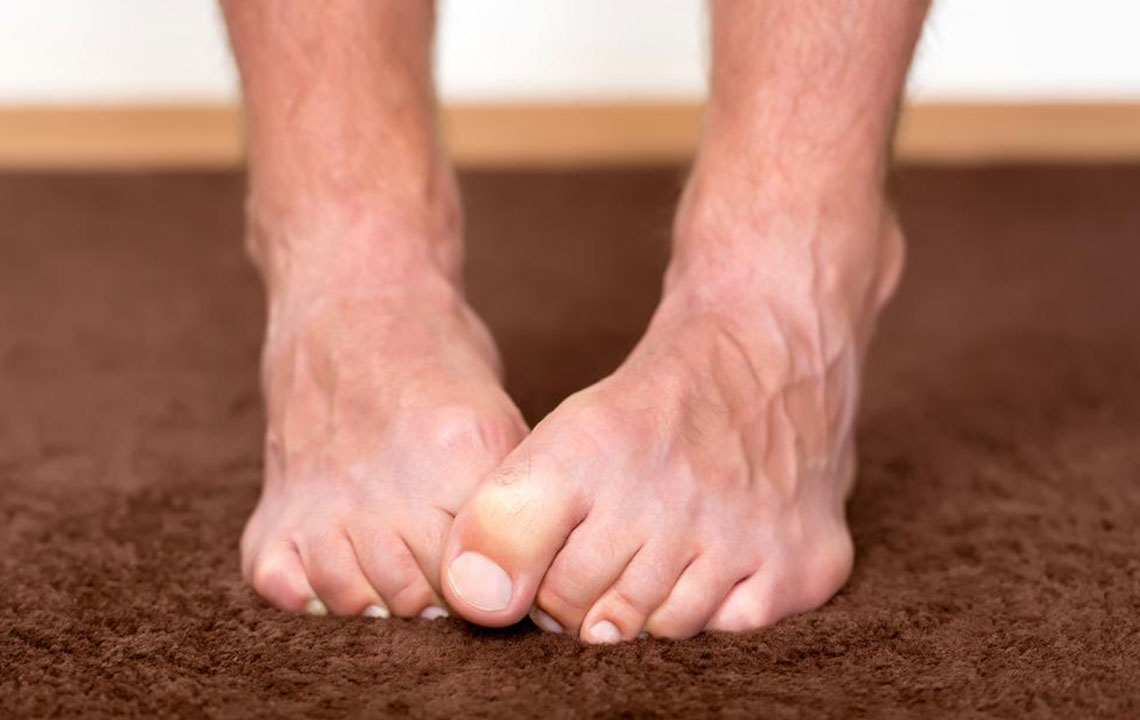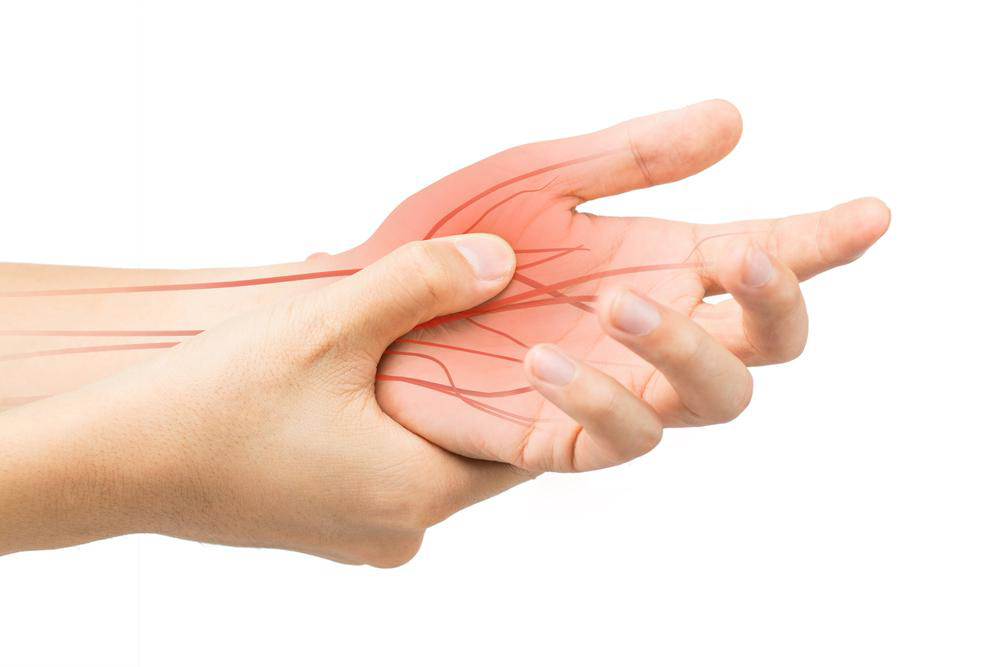Comprehensive Approaches to Alleviate Nerve Pain and Discomfort
This comprehensive guide explores effective, evidence-based strategies to alleviate nerve pain and discomfort. It emphasizes lifestyle changes, natural therapies, and professional interventions that can significantly improve nerve health. From maintaining blood sugar levels to practicing relaxation techniques and using aromatherapy, discover holistic approaches to manage and reduce nerve-related issues. Suitable for anyone experiencing nerve discomfort, this article provides practical tips and insights to improve quality of life through informed health choices and lifestyle modifications.

Comprehensive Approaches to Alleviate Nerve Pain and Discomfort
The nervous system forms the backbone of human health, orchestrating a complex network of signals that regulate everything from movement to sensation. Proper nervous system functioning is crucial for maintaining overall health, ensuring organs operate efficiently, and facilitating proper sensory perceptions. However, in today's fast-paced and often stressful environment, many individuals experience nerve discomfort or pain, which can significantly impact quality of life.
Nerve pain and discomfort are increasingly common due to various lifestyle factors, health conditions, and environmental triggers. Understanding the underlying causes and exploring effective strategies can help alleviate these symptoms and improve well-being. It's important to recognize that nerve-related issues can be classified broadly into idiopathic cases, where no clear cause can be identified despite thorough testing, and cases related to underlying health conditions such as hypertension, diabetes, or nerve compression syndromes.
To effectively manage nerve pain and discomfort, adopting a comprehensive approach that combines lifestyle modifications, natural remedies, and professional interventions is essential. Here are some of the most proven strategies that can make a significant difference:
Monitor and Regulate Blood Sugar Levels
One of the primary contributors to nerve damage, especially peripheral neuropathy, is poorly controlled blood glucose levels. Consuming excessive refined sugars can lead to spikes in blood sugar, impairing circulation and damaging nerve fibers. To mitigate this risk, it is advisable to switch to healthier alternatives such as natural sweeteners like honey or stevia, and regularly monitor blood glucose levels. Consulting healthcare professionals for personalized dietary guidance can further assist in maintaining optimal blood sugar balance, thus reducing nerve damage progression.
Engage in Consistent Physical Activity
Regular exercise, such as brisk walking, swimming, or yoga, is a cornerstone of nerve health. Physical activity stimulates the release of endorphins, which are natural pain relievers. Additionally, it enhances blood circulation, delivering essential nutrients and oxygen to nerve tissues, promoting repair and reducing inflammation. Developing a daily routine that includes moderate exercise can help manage nerve discomfort, improve mobility, and prevent further nerve impairment.
Practice Relaxation and Stress Reduction Techniques
Chronic stress can exacerbate nerve pain by increasing muscle tension and impairing immune response. Techniques such as massage therapy, foot spas, deep breathing exercises, progressive muscle relaxation, or gentle stretching can relax nerves and ease mental stress. Regular massage not only alleviates tension but also stimulates blood flow, which is vital for nerve health. Incorporating these practices into daily life can significantly improve nerve function and alleviate associated discomfort.
Avoid Alcohol and Tobacco Use
Both alcohol and tobacco contain neurotoxins such as nicotine and other harmful chemicals that damage blood vessels and nerve tissues. These substances impair circulation, hinder nutrient delivery, and can worsen existing nerve conditions. Quitting smoking and reducing alcohol intake can lead to marked improvement in nerve health, reduce inflammation, and promote faster healing. Seeking support through counseling or cessation programs can facilitate this vital lifestyle change.
Utilize Warm Water Soaks
Soaking affected limbs or feet in warm water has been a traditional remedy for nerve discomfort. Warm water relaxes muscles and nerves, promotes vasodilation, and reduces inflammation, providing quick, temporary relief from pain. Adding Epsom salts to the soak can enhance relaxation and magnesium absorption, which may further support nerve health. Regular warm water therapy can be an effective adjunct to other treatments, especially for peripheral nerve pain.
Optimize Sleeping Position and Rest Patterns
Proper sleep and resting posture are crucial for nerve recovery. Elevating legs slightly above heart level with pillows can reduce swelling and nerve pressure during sleep. Avoiding prolonged pressure on specific nerves, maintaining good spinal alignment, and using supportive mattresses can prevent nerve irritation. Quality sleep supports immune function, reduces stress hormones, and promotes tissue repair, all of which are beneficial for nerve health.
Consider Acupressure and Alternative Therapies
Acupressure, a traditional Chinese medicine technique, involves applying targeted finger pressure on specific points to relieve nerve stress and stimulate healing. When performed by certified practitioners, acupressure can complement conventional treatments and provide relief from nerve-related discomfort. Other natural therapies like herbal supplements, meditation, and mindfulness practices can also contribute to nerve healing and pain management.
Maintain a Healthy Body Weight
Excess body weight increases pressure on nerves, particularly in the lower limbs, and can accelerate nerve damage, especially in diabetic neuropathy cases. Weight management through balanced diet and regular exercise helps reduce this pressure, prevents inflammation, and improves overall circulation. Monitoring body weight and working towards attaining a healthy BMI is a vital preventative measure for nerve health.
Utilize Aromatherapy and Essential Oils
Aromatherapy with botanical essential oils such as lavender, peppermint, or eucalyptus has been known to relax nerves and improve blood flow. Incorporating essential oils into massages or diffusing them in living spaces can reduce anxiety and provide soothing comfort. Ensure that oils are used safely and in proper dilutions, and seek professional guidance if necessary.
Adopting these holistic and scientifically backed strategies can significantly improve nerve comfort, alleviate pain, and enhance overall well-being. It is important to consult healthcare professionals for personalized diagnosis and treatment options, especially in severe or persistent cases of nerve discomfort. With consistent effort and appropriate interventions, nerve health can be maintained and improved, leading to a more comfortable and vibrant life.





